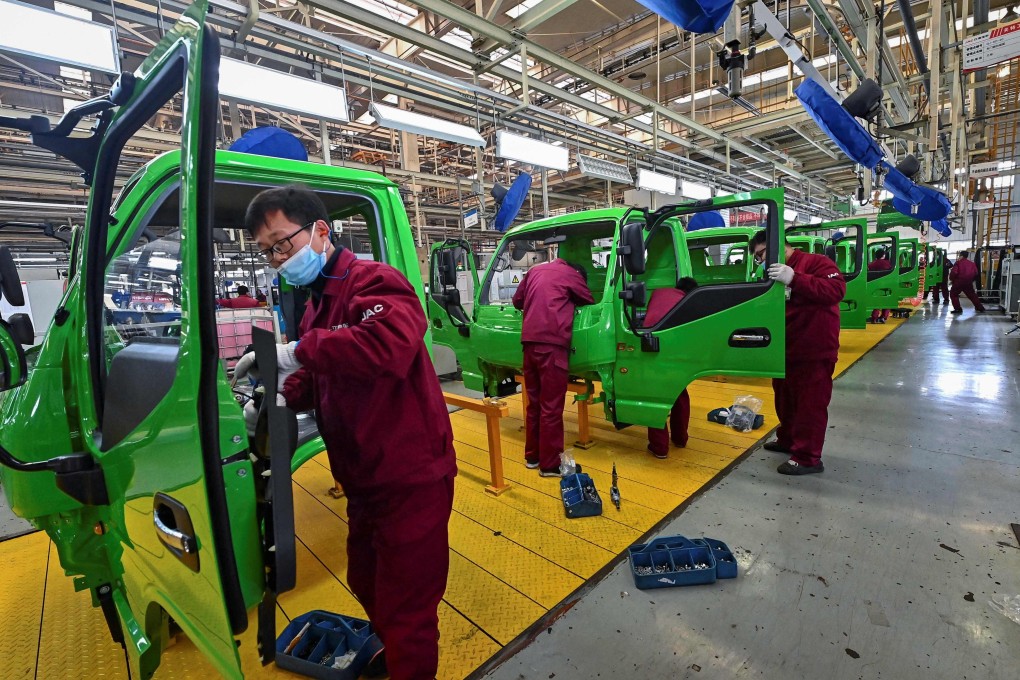Coronavirus: China manufacturing sentiment trails world’s major economies amid lockdowns
- China had the lowest manufacturing purchasing managers’ index level among 22 major economies in April
- The reading once again puts the spotlight on the economic damage caused by Beijing’s zero-Covid policy

Manufacturing sentiment in China was the worst among the world’s major economies in April, as the government refuses to budge from its zero-Covid policy and geopolitical tensions cloud the growth outlook.
The state-affiliated China Federation of Logistics & Purchasing (CFLP) on Friday published a table of the manufacturing purchasing managers’ index (PMI) in 21 major economies for last month.
A reading above 50 indicates an expansion in production, while a reading below indicates contraction.
“Impacted by sporadic and frequent outbreaks and international geopolitical clashes in April, Chinese manufacturing has faced downward pressure and a slower growth rate, dragging down the growth rate of Asia’s manufacturing sector,” said the CFLP in a statement on Friday.
